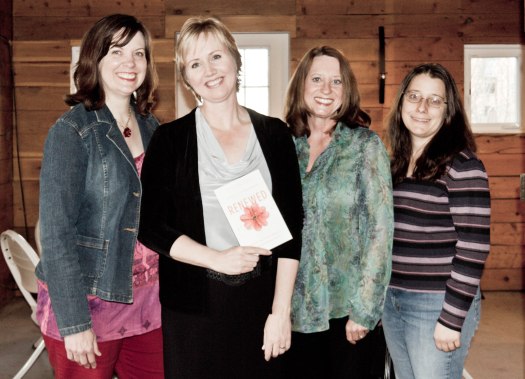As I finished grad school, I began writing about my experience. I wrote about what I wished I had known earlier in life. I wrote about psychological tools that heal people. In summary, I wrote about pain and what healed that pain. One day, while sitting in a coffee shop, I decided I was going to write a book about all this. So let’s see, it only took eight years to figure out how to find an agent, query an idea, write a proposal, change my idea, change my agent, and finally write the book once it sold. And only eight years of full time engagement in social media, blogging, and marketing. Only eight years of researching and learning through writing and speaker events. That in addition to my real job as a Licensed Professional Counselor and part time professor at a local university.
Getting a book published is difficult.
 So the idea of seeing boxes of books on my front doorstep feels both surreal and monumental. It’s a huge accomplishment that I will celebrate with a party, in a red barn, with twinkly lights. There will be music, friends, food, and revelry. But I know that a published book won’t bring me happiness.
So the idea of seeing boxes of books on my front doorstep feels both surreal and monumental. It’s a huge accomplishment that I will celebrate with a party, in a red barn, with twinkly lights. There will be music, friends, food, and revelry. But I know that a published book won’t bring me happiness.
A few days ago I was talking to a friend who has authored over 40 books. I told her I knew that having a published book would not make me happy. She seemed surprised and wanted to know how I knew that ahead of time. I told her I thought it was because I had done so much research on the topic of happiness. I understand what poor judges people are at knowing what will bring them happiness and what won’t.
Striving authors need to know that a published book won’t make them happy. Here’s why:
- People have a happiness set point. Fifty percent of happiness is genetic, ten percent is based on life circumstances, and forty percent is within our power to effect. For instance, Americans will put themselves in debt for decades thinking a dream home, boat, or car will make them happy. But the new wears off within a few days because of an effect called hedonic adaptation. Most people don’t understand that the lotto winer and the paralyzed person will bounce back to their prior happiness level within a few months of their changed life condition.
- The joy is in the journey. I’ll never forget what my friend Zeke Pipher said when his book released. In essence, “Whether this book sells or not, it won’t define my worth, happiness, or success.” He went on to describe his faith and his relationship with his wife and children, saying those were the reasons for his joy. Zeke should know. His mom wrote an international best-seller. She soon found that the harried pace of traveling and speaking made her miserable. There’s an interesting research study that found when people were randomly beeped, and told to write down what they were doing and how happy they were, folks were happiest while in the creative state of “flow.” Flow is when you are fully absorbed in an activity, so much so that you lose sense of time. Numerous studies have shown that it is the striving, not the achieving, that makes us happy, especially when our goals are realistic, flexible, valued by the culture, authentic, non-materialistic, and not negatively impacting other parts of our lives.
- The more we attain, the more we want, and this negates our increased happiness. Professor Sonja Lyubomirsky in her newly released book, The Myths of Happiness, explains that aspirations are misleading. We attain more, so we want more, and the wanting makes us feel bad. Crazy huh? She concludes that we shouldn’t expect less but that we should simply not allow our desires to continue escalating to the point where we end up feeling entitled and convinced that we would only be happy if we got more and more of this or that.
- Relying on external rather than internal validation makes us unhappy. Some people think they will be happy based on other people’s opinions of their success. But, when we ask ourselves the question, “How good (successful, smart, prosperous, ethical) am I?” the people who rely on an internal rather than external objective standard are happier. There will always be someone wealthier, more attractive, thinner, more popular, and more talented. Therefore, relying on other people’s opinions rather than our own is a recipe for misery. In short, goals which cause growth, make us feel competent, and connect us to others are the ones that make us happy. Goals that make us strive to be rich, famous, popular, or powerful make us unhappy. (I wrote more about this over here at Michael Hyatt’s blog.)
*I orignially wrote this post just before my book released in March 2013. It’s true, having a published book has not made me any happier than I already was. I feel a sense of achievement and gratitude, but I’m glad I knew it wouldn’t make me any happier than I already was.
Think about the last big milestone you achieved.
How long did the happiness last?
